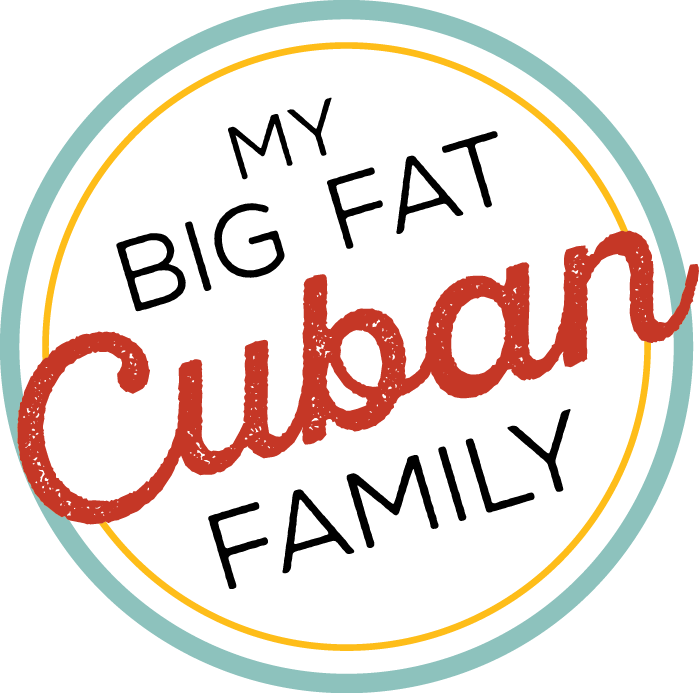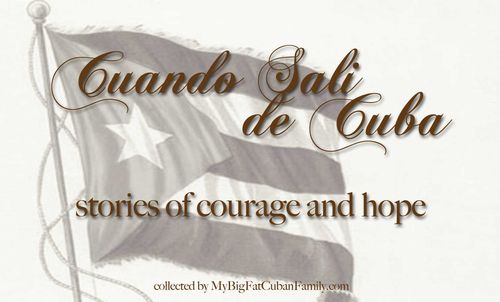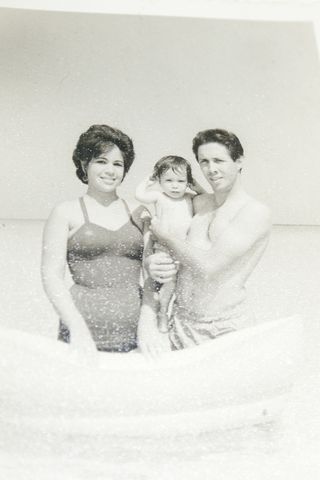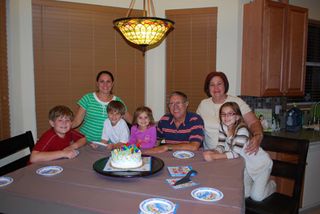Cuando Sali de Cuba - Edilia's Story
/Marta here: My heart was aching as I first read Edilia's story. Imagine being a newlywed in Castro's Cuba and looking for a chance to get out and start a new life.
By Edilia Beltran Pinero
My full name is Josefa Edilia Beltran Bermudez de Pinero. I was 13 years old when Castro came into power. I did not understand much of what was going on, but quickly learned that life as I knew it had ended.
I had been born late in my parents’ life, therefore they were hesitant to leave Cuba and had hoped that the Castro regime would be defeated and life would go back to normal, but it was not be.
I had spent my childhood and early adolescence in a private school and had enjoyed every second of it. Our summers were spent in Varadero. We also visited Soroa, Hanabanilla, Valle de Viñales, Valle de Yumuri, Trinidad, Cienfuegos, Santiago de Cuba, Santuario del Cobre, among others. I had a wonderful life thanks to my parents!
Now, my school was no more and indoctrination permeated every aspect of public school. lt was 1961 and rather than being subjected to the brainwashing and a year away from graduation, I decided not to go on with school and found my first job. I had met a young man while still in private school and we started so see each other, first as friends and then we became engaged. We got married in October 1962 and started our life together.
Varadero, 1965. Edilia, Manolo y Manolito.
I became one more among the young women of my generation who got married looking forward to the start of a new life abroad. At first, I was adamant about not leaving my parents behind but they were encouraging us to leave as the situation was getting worse and worse.
To make a long story short, my husband was not allowed to leave when we first attempted it. Men between the ages of 14 and 27 were not granted the required permit. They had to put a stop to the droves of young men that were leaving the country to seek a new life abroad. Consequently, we had to wait until he reached the appropriate age.
When we requested permission to leave, it was still a nightmare. He lost his job and was sent to several forced labor camps. I was able to escape the forced labor because I had two small children, but life for me was not easy either. People knew we were “gusanos” (worms) as they called us and we were under constant surveillance and and suffered a lot of public and private humiliation.
The least of mistakes could send you into limbo and your permit to leave Cuba would not be granted. We lived our lives in extreme fear. This feeling of living in constant dread, day in and day out, is one I will never forget.
Finally in March of 1972, we were granted the long awaited permit and boarded an Iberia flight to Madrid at 9 am in the morning. I left with mixed emotions as I was leaving my parents behind and did not know at the time if I would ever see them again. They still had hope and thought our absence would be temporary.
Everyone was extremely quiet as the plane lifted off – fear does paralyze you. Finally, someone broke the silence and said, “We are not in Cuba anymore!” and we all laughed and cried at the same time. Food came and it was lobster salad! We started to see that there was definitely a different life out there.
When we got to Madrid we had friends waiting for us. It was 1 am the morning of the next day and the temperature outside was 33ºF. We bundled up as well as we could, especially the children, and descended the stairs to get into a bus that would take us to the terminal. The next day we went to Catholic Charities and they provided us with warm clothes, coats, and even boots. Life in Spain was good. Within a month we moved to the Canary Islands where friends had found us both good jobs and we enjoyed our time there. There was still a problem: the only family we had outside of Cuba was in the U.S. So finally in May of 1974, we arrived in Miami.
Miami, 1978. Edilia, Manolo, Manolito y Janely.
By the time we came here, we were experts in “starting a new life.” We immediately found jobs, I got a college degree. We changed jobs several times - always looking for improvement, and I have to say that we could not complain. We were able to provide our children with a great education, which was our number one priority.
Sadly, I did not see my mother ever again. She passed away in Cuba in 1981 while we were trying to bring her and my father to the U.S. My father made it a year later and lived with us until his passing in 1984. I am eternally grateful to my parents for the life they gave me and for the sacrifices they made so that we could give our kids a better life. Now that I have grandchildren myself, I totally understand.
Edilia, Manolo, Janely and the four grandchildren. Boca Raton, 2012.
My husband and I are retired, enjoying our four grandchildren - born to our daughter - and we are celebrating our 50th Wedding Anniversary this year. Our son passed away in 1981, he was 17, but we have the consolation that he too was able to enjoy a good life until God decided he needed one more angel. He lives on in our hearts.
All the tribulations and suffering that we went through to become Americans were worth it. Even though we still keep many of our Cuban traditions and have taught them to our family, we are undeniably part of the melting pot. We enjoy our afternoon cafecito, pastelitos de guayaba y cena de Nochebuena, while at the same time enjoying hamburgers, Thanksgiving dinner and apple pie.















